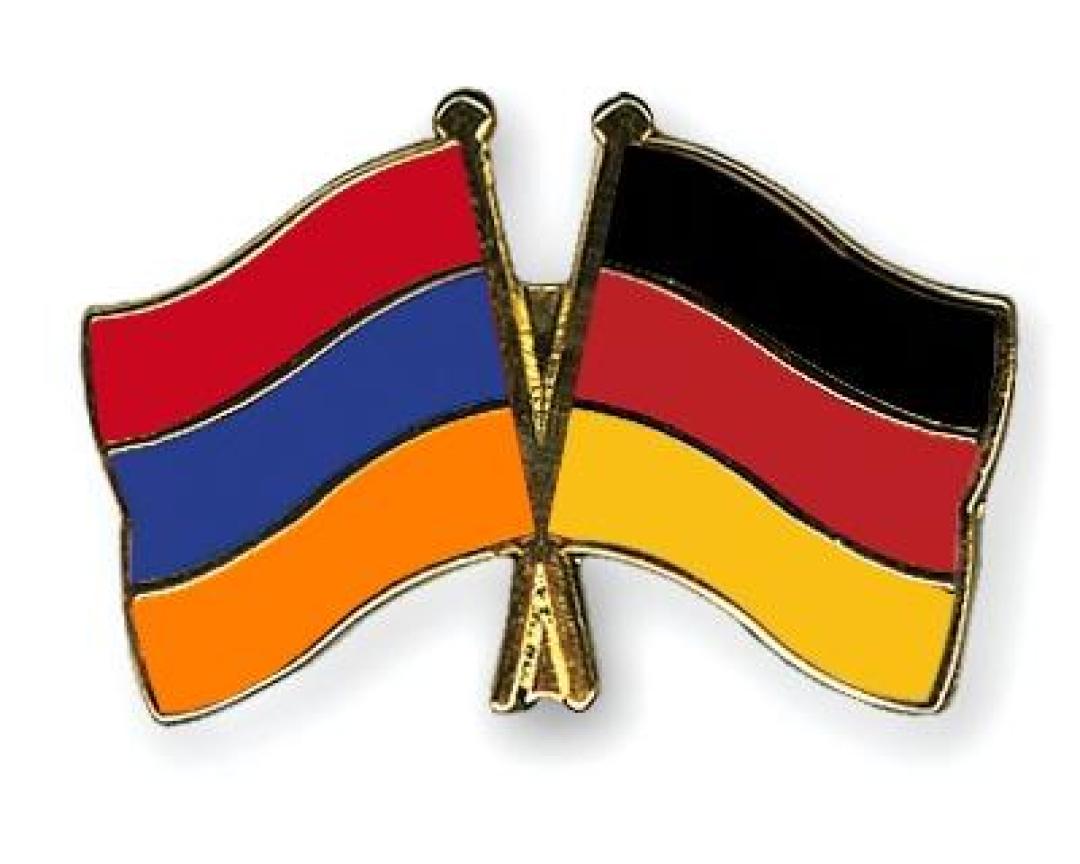
Germany-South Caucasus Parliamentary Group German Bundestag Visits Armenia

Meeting with Deputy Foreign Minister
On March 21, Armenian Deputy Foreign Minister Paruyr Hovhannisyan received the delegation of the Germany-South Caucasus parliamentary group of the German Bundestag, headed by Tabea Rößner, the group's vice-president, the Press Office of the Armenian Foreign Ministry reported.
Welcoming the visit of the German Bundestag delegation to Armenia, the Deputy Foreign Minister highlighted inter-parliamentary contacts in the development of Armenian-German relations. The interlocutors discussed a wide range of issues related to Armenian-German relations.
"Paruyr Hovhannisyan, presenting to the German parliamentarians the complex security situation in the region, as well as the consequences of Azerbaijan's aggression against the sovereign territory of Armenia, emphasized the role of the EU's long-term observation mission in stabilizing the situation," the report added.
"The Deputy Minister also emphasized that Azerbaijan's illegal blocking of the Lachin Corridor, the killing of police officers, periodic violations of the ceasefire regime, as well as the intimidation of the civilian population make it imperative to send an international fact-finding mission to Nagorno Karabakh and the Lachin Corridor," it said.
Meeting with Nikol Pashinyan
On the same day, Armenian Prime Minister Nikol Pashinyan received the members of the Germany-South Caucasus Friendship Group of the German Bundestag, the Press Office of the Armenian Prime Minister reported.
The Prime Minister noted that Armenia attaches importance to the partnership with Germany, and the visit of the Bundestag delegation to Armenia shortly after his visit to Germany on March 2-3 proves that the relations between the two countries are developing dynamically. Referring to his visit to Germany, Nikol Pashinyan assessed it as effective and noted that he returned from Berlin with warm impressions.
According to Tabea Rößner, the visit of the parliamentarians of the Bundestag to Armenia is a manifestation of the continuation of the effective dialogue within the framework of which they have already had meetings with their parliamentary partners and representatives of the government.
The interlocutors emphasized the role of inter-parliamentary ties in the development of Armenia-Germany cooperation and discussed issues on the bilateral agenda.
The Prime Minister referred to the reforms implemented in Armenia, the recorded high economic indicators, and highlighted the importance of the support of the European Union and Germany to the democratic agenda of Armenia. Nikol Pashinyan emphasized that protecting human rights, establishing an independent judicial system, the fight against corruption, and ensuring transparency are priorities for his government. Tabea Rößner noted that Germany would accompany Armenia on that path. Issues related to the promotion of women's involvement and cooperation in the fields of renewable energy and the environment were also discussed.
The parties exchanged ideas on the regional situation, security challenges, and peace agenda. In this context, the Prime Minister highlighted the role of the long-term observation mission of the EU.
"The crisis created in Nagorno-Karabakh as a result of Azerbaijan's illegal blockade of the Lachin Corridor was addressed. In terms of settlement of the problem, the consistent and addressed response of the international community, the implementation of the decision of the International Court of Justice published on February 22 of this year by Azerbaijan was emphasized," the report added.
See Also


Armenia Records 5.9% GDP Growth in 2024, Missing 7% Goal

Yerevan Balances Strategic Ties with Both US and Russia, Says Foreign Minister

FM Mirzoyan: Peace Deal with Azerbaijan Is Within Reach

Pashinyan and Erdogan Hold Call, Reaffirm Commitment to Ongoing Dialogue

